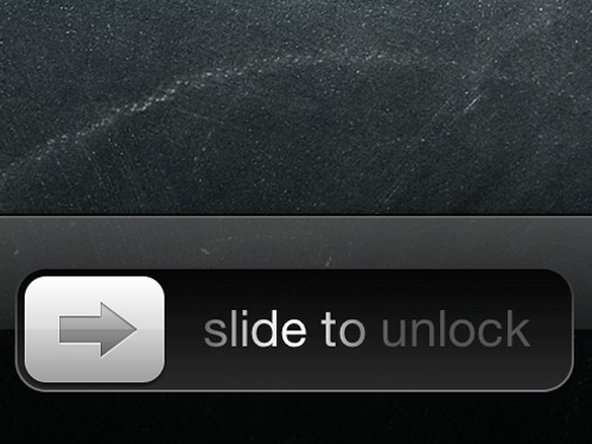After nearly a year of dragging its feet in the legislative mud, Congress is finally poised to pass a law that will decriminalize cell phone unlocking. But last-minute changes have neutered the legislation to the point where we can no longer support it.
Tomorrow, the House will vote on the Unlocking Consumer Choice and Wireless Competition Act (H.R. 1123). If made law, H.R. 1123 will—at least temporarily—reverse the Librarian of Congress’s decision to ban cell phone unlocking. And while the bill has a good shot of passing, a number of groups that once supported the bill are now opposing it.
How We Got Here
“Unlocking” allows owners to circumvent digital locks that bind cell phones, tablets, and other wireless devices to a specific carrier. So if you like your phone but hate your service provider, you can take your phone with you to a different carrier after the end of your contract. The practice is also a common resort for overseas travelers and servicemen, giving them the ability to pop a local SIM chip in their phones and avoid exorbitant roaming fees while abroad.
In 2012, the Librarian of Congress ruled that “unlocking” cell phones without carrier permission violated copyright laws put forth in the Digital Millenium Copyright Act. Digital rights activists were quick to point out that “unlocking” has nothing to do with piracy or copyright. Unlockers aren’t breaking digital locks to pirate the software in their phones—all they want to do is modify it.
Almost overnight, unlocking became a hot button issue. Mere weeks after the ban went into effect, 114,000 people signed a White House petition to re-legalize unlocking. And the White House agreed, calling on Congress to pen a legislative solution. The House and the Senate responded with uncharacteristic zeal, drafting several competing bills—each one addressing the issue in slightly different ways.
An Incomplete Solution
Only one bill, however, garnered widespread support by digital rights organizations and copyright reformers: The Unlocking Technology Act, introduced by Representative Zoe Lofgren (D-CA). The bill would permanently legalize unlocking all wireless devices. Ultimately, though, Congress pursued Representative Goodlatte’s (R-VA) H.R. 1123—a temporary and far more narrow legislative option.
H.R. 1123 re-legalizes unlocking, but only for phones—not tablets or other wireless devices. And H.R. 1123 is not a permanent solution. The law would only overturn the Librarian of Congress’s decision until it comes time for him to rule on the issue again. Potentially, the Librarian of Congress could criminalize unlocking again in just 20 months. Complicating matters, the Trans-Pacific Partnership Treaty—still being hammered out behind closed doors—could render it impossible for Congress to pass any other unlocking legislation.
Poison Pill
Reformers might have lived with the bill’s shortcomings—that is, until last week. Last minute changes were just made to the bill to exclude protections for “bulk unlocking,” a crude term referring to one of the fastest growing green industries in the US—electronics recyclers and refurbishers. Well respected companies that repair and refurbish cell phones have no legal standing to unlock devices. So, instead of fixing and reselling things like iPads and Galaxy phones, refurbishers will likely shred them instead. Unsurprisingly, environmental and recycling groups are now opposing the bill, raising concerns that this new change in the bill will worsen the e-waste problem.
Public Knowledge, an early backer of unlocking reform, pulled support for the bill on Friday. Even Derek Khanna, whose 2013 polemic against unlocking helped to thrust the issue into the national spotlight, remains unconvinced of H.R. 1123’s long-term efficacy.
“As someone who spearheaded the campaign on unlocking, any action on this front is a positive step for consumers and the market,” wrote Khanna. “But after Congress passes this temporary stop-gap solution they must quickly consider a permanent solution to the problem, and must ensure that the Trans-Pacific Partnership Treaty (TPP) does not make any permanent solution impossible.”
ISRI, an influential trade association representing electronics recyclers and refurbishers, was particularly offended by the characterization of their members as ‘bulk unlockers.’ Processing and reusing electronic waste in bulk is the only way we’re going to make a dent in the growing e-waste problem. Americans generate 3.4 million tons of e-waste every year, and these refurbishers are doing their best to keep cell phones out of landfills. But Congress seems intent to make that as difficult as possible.
It’s rare for the repair, reuse, and recycling industries to collaborate on anything. But they are united in opposition of H.R. 1123. And iFixit stands with them. We’ve supported unlocking from the very beginning. And for the past year, we’ve fought for meaningful copyright reform. H.R. 1123 is not that. We can’t in good conscience support a bill that stymies reuse—especially one that is so far out of line with the public sentiment that inspired this bill in the first place.
Update: H.R. 1123 passed the House. It now moves on the Senate.





0 Comments